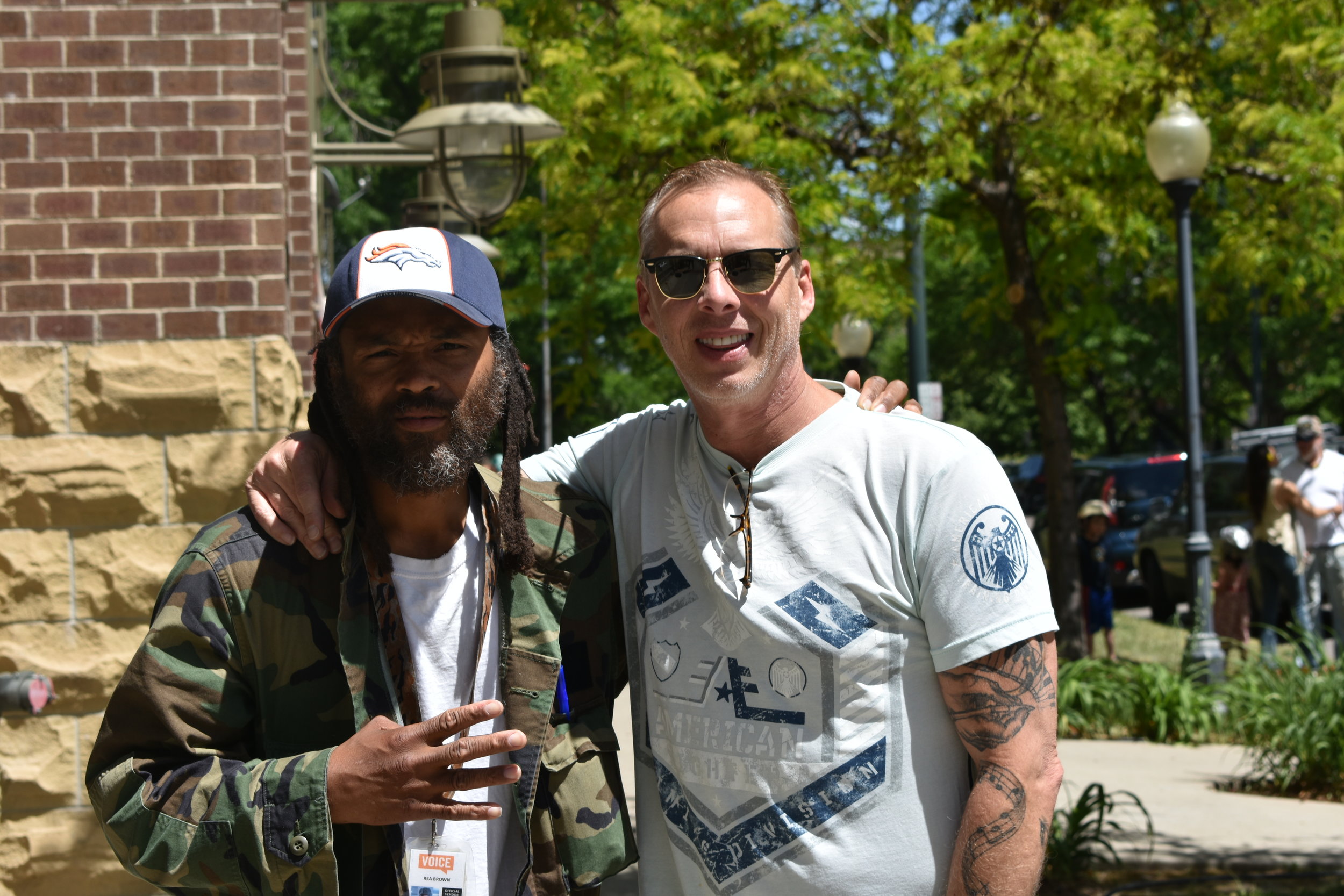Denver’s Savant
By Sarah Ford
Denver-based musician Derek Amato is one of very few people in the world ever diagnosed with acquired savant syndrome. He tells the VOICE how the accident that changed his life helped him find his true calling.
Amato has released an album with another soon on the way. “I’m a perfectionist,” he says. “It’s no matter right, however many times I write it.” (Credit: Derek Amato)
It is a head injury that changed Derek Amato’s life, but it is his service that gives his life purpose.
“Now I get to take this music, this gift, and use it as a vehicle to bring attention to wherever I go,” he tells VOICE staff and vendor Rea Brown over lunch on a May afternoon.
That “gift” is acquired savant syndrome, in Amato’s case a suddenly acquired talent in music as the result of a head injury he suffered while diving into a swimming pool at his mother’s South Dakota home in 2006. His severe concussion cost him 35 percent of his hearing in his left ear and spurred lifelong headaches.
After the accident, Amato spent five hazy days sleeping constantly while he recovered in his mother’s home. Visiting a friend, while preparing to return to Denver, Amato found himself drawn to a piano. He sat down and simply began to play.
“I didn’t know where I was, I didn’t know I was in the room,” Amato says of the moment that revealed his talent. “I was just in this space of recognizing the musical notation.”
Though he had never played the piano, nor taken a formal lesson, Amato’s fingers suddenly created flowing composition, rising into dramatic crescendos and weaving into arpeggios. As he came back to himself, he looked up to see his friend’s eyes filled with tears as he asked, “What is going on?”
Only a handful of people have been diagnosed with acquired savant syndrome — less than 100. While much about the condition remains a mystery, research by the Wisconsin Medical Society suggests that profound artistic and musical talent may lie dormant in each person but can be accessed through a re-wiring of the brain due to severe trauma.
With the discovery of his gift, Amato saw opportunity: not for fame or wealth, but instead to give back through public performances and the relative celebrity his gift brought him. But the transition from the corporate world, where Amato had spent most of his life, proved more challenging than he thought.
“Money just wasn’t coming as fast as I thought it would,” he says. “After three years of struggle I kind of became numb to it because it taught me how to enjoy life with very little, and material items became not very interesting to my life.”
Looking back, Amato admits it may have been an easier path to stay in his earlier job as a corporate sales trainer.
“It was intense and brutal,” he says. “Ten years later I still perform just enough to make ends meet. I do that because the gift has allowed me to have more freedom in my life and I get to do the things I’ve always wanted to do. I get to spend time on the streets, with my partner, and with my kids.”
A busy father of three, it is his partner of ten years, Hazel, who Amato credits with keeping his ambitions and spending in check while moving from corporate culture to earning money through performances and guest appearances.
“When I met her, I knew I wanted to spend the rest of my life with her,” he says. As he admits, “she is definitely the bread winner.”
Amato began appearances on a variety of programming including “The Today Show” and NPR, and was even featured in the Discovery Channel series “Ingenious Minds.” He now earns his income through his music and public performances, and is working on a new album. But Amato makes clear that he sees his steps toward celebrity as a vessel to achieving a mission of philanthropy. Particularly in addressing issues of homelessness.
Derek Amato with VOICE vendor Rea Brown. Both developed a friendship after Amato became one of Brown’s regular customers. (Credit: Sarah Ford)
That passion is part of what led him to VOICE vendor Rea.
“I stopped to say hello and the moment I met him, I fell in love with him,” says Amato. “It was an instant understanding.”
An understanding shared by a similar story — Amato has also experienced homelessness.
It happened in 2002, before he ever became a musician, after a miscalculated business decision left him with nothing. He lived out of his car for a long three and a half months.
“It felt like 10 years. Every day became a month,” says Amato. “It became an eye-opener. It’s humbling. I wouldn’t change it for anything. I’m happy and blessed I had that experience because it gives me an even deeper connection.”
Now with a published autobiography, another album on the way, and several television appearances, Amato says his only concern is how he can uplift others.
That includes handing out home-made supply packets to those experiencing homelessness in each city he visits to perform. He also supports several other philanthropic efforts, including musical therapy schools for differently abled children.
“God had this happen for a reason,” Amato says. “It was probably this reason.” ■


